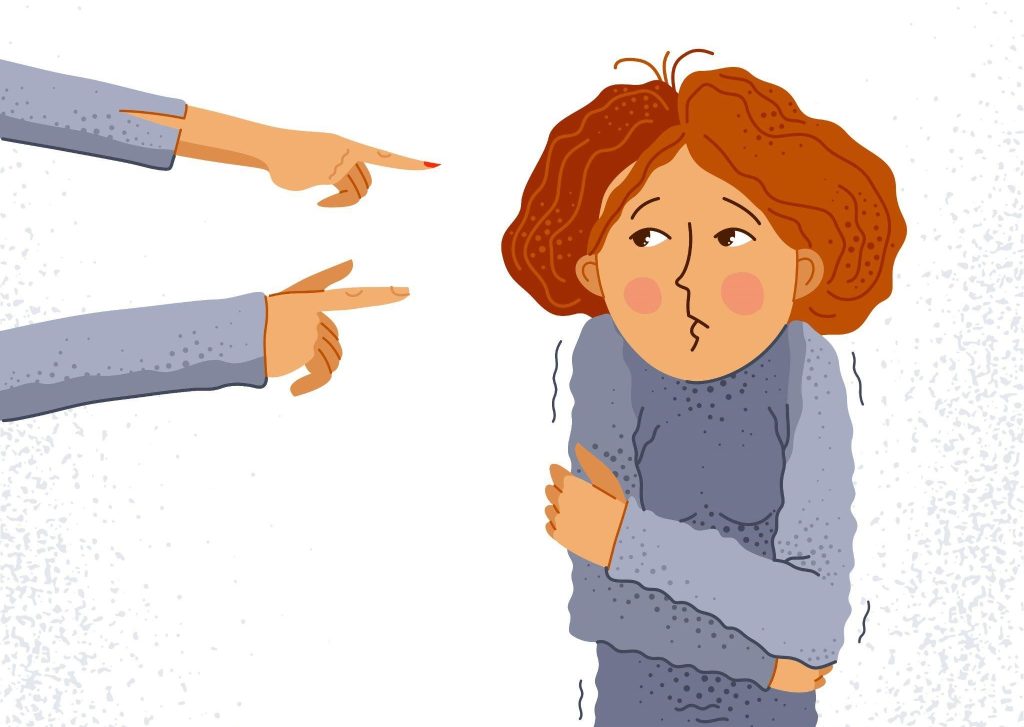IMPACT OF CONSTANT CRITICISM ON A CHILD

WHAT IS CRITICISM:
Criticism can take various forms, including verbal comments, written reviews, or nonverbal cues. While it can serve as a tool for growth and development, excessive or harsh criticism can be brutal, leading to negative feelings, lower self-esteem, and hindrance to professional growth.
HOW DOES CONSTANT CRITICISM AFFECT THE BRAIN OF CHILDREN?
Constant criticism significantly impacts children's developing brains, leading to various emotional, cognitive, and social challenges. When children experience ongoing negative feedback, their brains get affected, forcing them to learn unnecessary coping behaviors and survival techniques. It creates a lack of self-trust and hollowness inside them, leading to various psychological problems including post-traumatic stress, depression, and eating disorders.
- HYPERVIGILANCE:
Repeated criticism messes up the emotional center of the brain, leading to heightened anxiety and stress responses. It opens the door for abnormal coping strategies like Hypervigilance. It becomes challenging for children to manage their emotions when they are always alert. As a result, they become more fearful, prone to panic, insecure, and less emotionally intelligent.
- LOW SELF-ESTEEM AND INDECISIVENESS:
Children subjected to constant criticism struggle with self-esteem throughout their lives unless they seek self-awareness.
Negative feedback creates a fixed mindset, where people believe their abilities are unchangeable. It reduces their motivation to take on challenges, as they fear failure and further criticism. The brain's prefrontal cortex, which is responsible for decision-making, gets affected, leading to indecisiveness and a lack of confidence.
- POOR COGNITIVE DEVELOPMENT:
Criticism on an everyday basis limits cognitive growth by discouraging exploration and problem-solving. Children become risk-averse, missing out on valuable learning experiences that foster creativity and critical thinking. In contrast, a supportive environment where mistakes are considered a normal part of growth encourages resilience and a love for learning.
- RELATIONSHIP STRUGGLES:
Socially, children who face constant criticism struggle to form healthy relationships. They might become withdrawn or overly compliant, fearing rejection all the time.
You often hear them say abnormal things, such as:
1. 'I don't care about anyone; I don't have time.'
2. 'I can't say no, I have to make everyone happy.'
Unfortunately, people-pleasing behavior and perfectionism often develop as coping strategies in childhood, scarring one's ability to develop essential social skills, such as empathy and effective communication. Research from 2024 clearly links negative emotional expression in relationships and traumatic childhood experiences, which, in turn, predicts lower happiness and loneliness in adult life.
GENERATIONAL TOXIC CRITICISM IN A FAMILY:
The most unfortunate settings are households where people in authority, including parents, grandparents, and older siblings, have not dealt with their own insecurities. They often criticize children negatively to feel better about themselves.
Children naturally tend to see themselves through the eyes of their loved family members, leading them to believe all they hear about themselves. A young brain finds it intimidating and can not process the toxicity. Not to forget that the toxic environment is where bullies and insecure individuals are formed. A 2024 study’s findings, which highlight the significant role of adverse childhood experiences as the primary risk factor for the development of Narcissistic personality disorder in adulthood.
HOW TO HELP CHILDREN EXPOSED TO NEGATIVE CRITICISM?
- It's important to teach children at a young age to differentiate between constructive and negative criticism.
- Role-play scenarios to practice responses to criticism in a safe space.
- Encourage resilience by framing mistakes as learning opportunities.
- Provide a supportive environment where children feel valued and understood.
- Reinforce that everyone makes mistakes and that talking about them and finding solutions with those who care about us is normal behavior.
A WORD FROM MENTAL NURTURING:
It is essential to understand that criticism works differently in the psychology of adults and children. Exposure to repeated negative evaluations has detrimental effects on a child's brain. It hinders emotional regulation, impairs cognitive growth, damages self-esteem, and impedes social skills. Dysfunctional household environments and toxic parenting practices, such as emotional and physical abuse, are shown to be the breeding ground for toxic personality traits in children. This underscores the crucial need to break the intergenerational cycles of trauma, a task that is both challenging and essential.
Critical parents often criticize their children not to hurt them but to encourage growth and strength. However, constant criticism is a part of emotional abuse, which leads to self-doubt, toxic shame, and low self-esteem in children. Therefore, caregivers and educators must provide constructive feedback and create a supportive environment that encourages resilience, confidence, and a positive self-image. For issues requiring professional help, cognitive behavioral therapy with an expert is highly effective for childhood trauma.
Ultimately, It's important to remember that balancing honesty with sensitivity is key to constructive criticism.
RESOURCES:
1- Wilson, N. (2024, November 4). The effects of highly critical parents — Wilson Counseling. Wilson Counseling.
https://www.wilsoncounseling.org/wilson-counseling-blog/the-effects-of-highly-critical-parents
2- Reiss D, Ganiban JM, Leve LD, Neiderhiser JM, Shaw DS, Natsuaki MN. Parenting in the Context of the Child: Genetic and Social Processes. Monogr Soc Res Child Dev. 2022 Mar;87(1-3):7-188. doi: 10.1111/mono.12460. PMID: 37070594; PMCID: PMC10329459.
3- Hagan, M. (2023, December 11). How to help kids deal with criticism. Child Mind Institute
https://childmind.org/article/how-to-help-kids-deal-with-criticism/
4- Servaas, M. N., Riese, H., Renken, R. J., Marsman, J. C., Lambregs, J., Ormel, J., & Aleman, A. (2013). The Effect of Criticism on Functional Brain Connectivity and Associations with Neuroticism. PLoS ONE, 8(7), e69606
https://doi.org/10.1371/journal.pone.0069606

Written by:
Rumsha Abdul Aziz, MS Psychology,
On December 31, 2024

